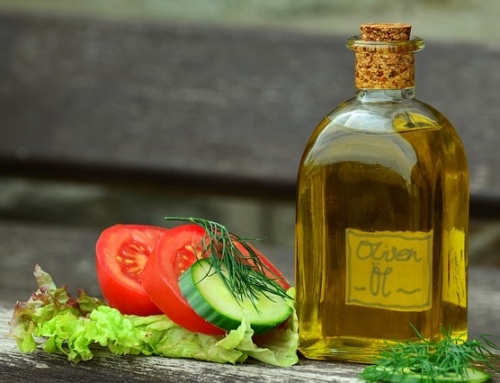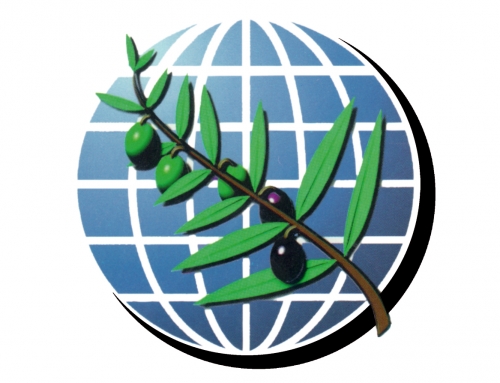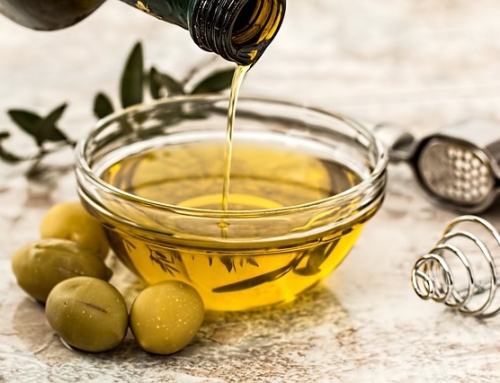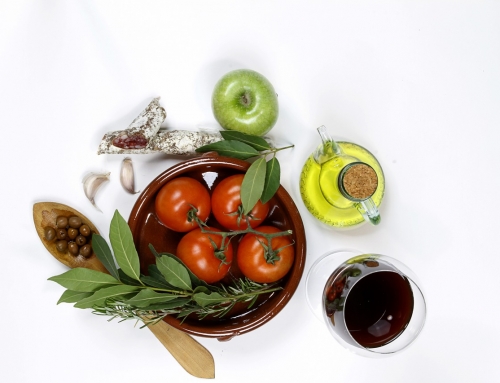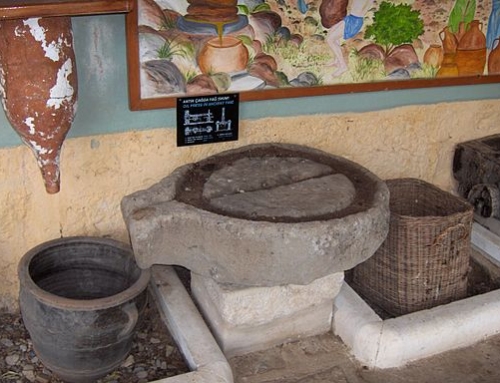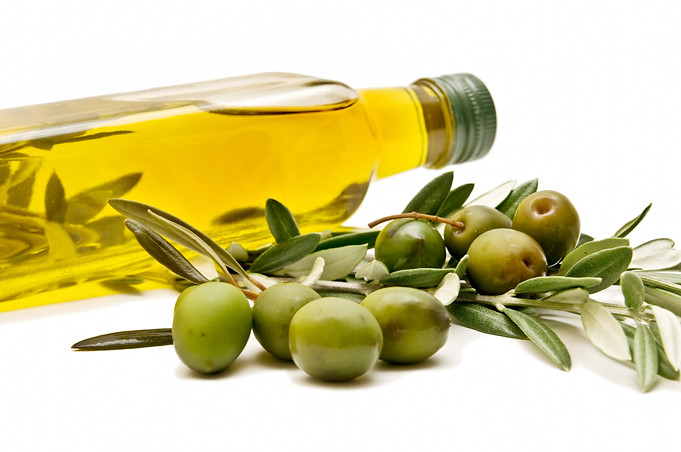
Olive oil also has religious symbolism for healing and strength and to consecration—God’s setting a person or place apart for special work. This may be related to its ancient use as a medicinal agent and for cleansing athletes by slathering them in oil then scraping them.
Judaism
In Jewish observance, olive oil is the only fuel allowed to be used in the seven-branched Menorah (not acandelabrum since the use of candles was not allowed) in the Mishkanservice during the Exodus of the tribes of Israel from Egypt, and later in the permanent Temple in Jerusalem. It was obtained by using only the first drop from a squeezed olive and was consecrated for use only in the Temple by the priests, which is where the expression pure olive oiloriginates, stored in special containers. A menorah similar to the Menorah used in the Mishkan is now used during the holiday of Hanukkah that celebrates the miracle of the last of such containers being found during the re-dedication of the Temple (163 BC), when its contents lasted for far longer then they were expected to, allowing more time for more oil to be made. Although candles can be used to light the hanukkiah, oil containers are preferred, to imitate the original Menorah. Another use of oil in Jewish religion is for anointing the kings of the Kingdom of Israel, originating from King David. Tzidkiyahu was the last anointed King of Israel. One unusual use of olive oil in the Talmud is for bad breath, by creating a water-oil-salt mouthwash.


Islam
In Islam, olive oil is mentioned in theQuranic verse: “God is the light of heavens and earth. An example of His light is like a lantern inside which there is a tourch, the tourch is in a glass bulb, the glass bulb is like a bright planet lit by a blessed olive tree, neither Eastern nor Western, its oil almost glows, even without fire touching it, light upon light.” The Qur’an also mentions olives as a sacred plant: “By the fig and the olive, and the Mount of Sinai, and this secure city.” Olive oil is also reported to have been recommended by the Prophet Muhammad in the following terms: “Consume olive oil and anoint it upon your bodies since it is of the blessed tree.” He also stated that it cures 70 diseases.
Christianity
The Catholic and Orthodox Churches use olive oil for the Oil of Catechumens (used to bless and strengthen those preparing for Baptism) and Oil of the Sick (used to confer the Sacrament of Anointing of the Sick). Olive oil mixed with a perfuming agent like balsam isconsecrated by bishops as Sacred Chrism, which is used to confer the sacrament of Confirmation (as a symbol of the strengthening of the Holy Spirit), in the rites of Baptism and the ordination of priests and bishops, in the consecration of altars and churches, and, traditionally, in the anointing of monarchs at their coronation. The Church of Jesus Christ of Latter-day Saints (Mormons) and a number of other religions use olive oil when they need to consecrate an oil for anointings.
Eastern Orthodox Christians still use oil lamps in their churches, home prayer corners and in the cemeteries. A vigil lamp consists of a votive glass containing a half-inch of water and filled the rest with olive oil. The glass has a metal holder that hangs from a bracket on the wall or sits on a table. A cork float with a lit wick floats on the oil. To douse the flame, the float is carefully pressed down into the oil. Makeshift oil lamps can easily be made by soaking a ball of cotton in olive oil and forming it into a peak. The peak is lit and then burns until all the oil is consumed, at which point the rest of the cotton burns out. Olive oil is a usual offering to churches and cemeteries.
In Orthodox Church, olive oil is a product not consumed during lent or penance while Orthodox monks use it sparingly in their diet. Exceptions are in feast days and Sundays.


